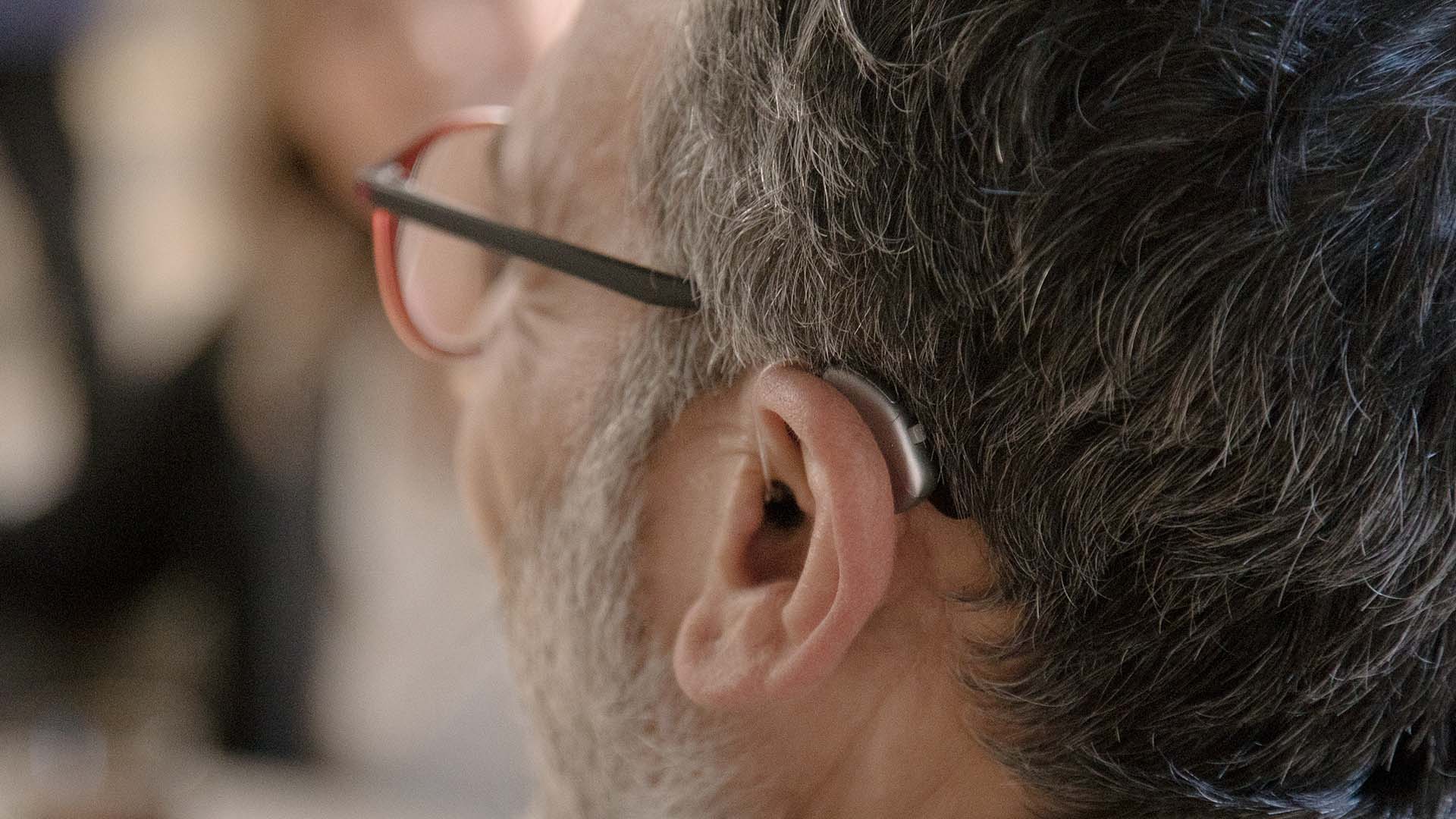Are your ears playing you a tune that you don’t want to hear? You likely have tinnitus, which is most commonly experienced as a ringing, buzzing, or humming in the ears

TINNITUS – THE WHY, WHAT, WHEN, WHERE AND HOW
Tinnitus is defined as a sound that is heard with no outside source – in other words, there is nothing in your environment that could be playing this sound. Some of the most common sounds that people relate their tinnitus to include a ringing, humming, buzzing, hiss, crackling, and the sound of ocean waves.
You’re not alone in experiencing this – recent research estimates that there are 740 million people1 living worldwide with tinnitus. That’s about 1 in every 10 people!
There is hope. Nowadays, there are a number of different ways to manage your tinnitus and regain your quality of life!
1 Jarach, C.M., Lugo, A., Scala, M., van den Brandt, P.A., Cederroth, C.R., Odone, A., Garavello, W., Schlee, W., Langguth, B., & Gallus, S. (2022). Global prevalence and incidence of tinnitus: a systematic review and meta-analysis. JAMA Neurology, 79(9), 888-900.

THE WHY OF TINNITUS

THE WHEN AND WHERE OF TINNITUS
The way in which people experience tinnitus differs from person to person.
Some might only hear their tinnitus every now and then, while others hear it constantly. You might also hear the tinnitus rhythmically, similar to how your heart beats, which we call pulsatile tinnitus.*
It is also possible that you only hear tinnitus in one ear, what is known as unilateral tinnitus.* Hearing tinnitus in both ears is referred to as bilateral tinnitus.
* In some cases, pulsatile and unilateral tinnitus can be a sign of a more serious medical condition, therefore we recommend that you seek medical attention from a qualified ear-, nose- and throat-specialist as soon as possible.

THE HOW OF TINNITUS

The mechanism behind how tinnitus works is usually linked to the cause of the tinnitus, but since most people with tinnitus have hearing loss, let’s look at the mechanism behind tinnitus associated with hearing loss.
You hear with your brain – the ears are just the entrance for sound.
Your brain relies on receiving sound information from the ears to interpret and assign meaning to. If you have hearing loss, your brain is deprived of some of that sound and isn’t able to construct a full ‘picture’ of what you’re hearing.
In an effort to ‘find’ that missing sound, your brain turns up its own internal ‘volume’, in the hope that this will make the sound more audible. However, as the hearing loss is impacting how the sound gets to the brain from the ears, this doesn’t help.
Instead, the brain is now overcompensating, and interpreting other signals that it might have otherwise ignored as sound. This is the tinnitus that you experience. Usually, if the hearing loss is treated (with hearing aids), the perception of tinnitus is also reduced.
Don’t worry – there are different ways to manage tinnitus.









